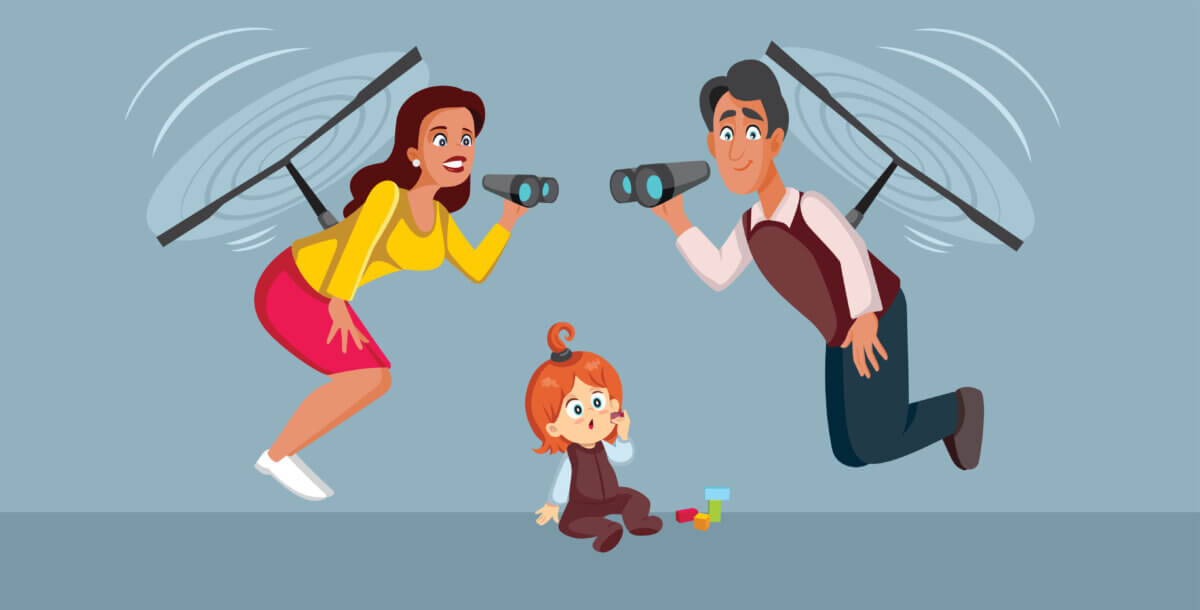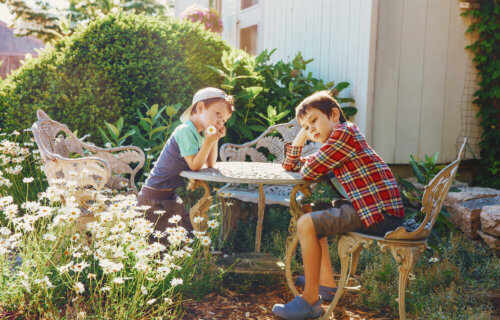COLCHESTER, United Kingdom — Are modern parents stifling their kids’ playtime? Moms and dads may mean well, but researchers from the University of Essex suggest today’s parents are monitoring their children a whole lot more than previous generations, potentially hindering both spontaneous play and development.
Researchers explain that while parents have always shouldered the responsibility of looking after and raising their kids, the so-called “heightened intensity” of parenting in recent years and decades has produced modern parents who believe they should spend close to all of their time exhaustively watching, noticing, and responding to their children’s desires and behaviors.
This latest study indicates that this approach to parenting is leaving less time for kids to play independently — a key time in childhood in which they learn the risks and dangers of outdoor play. The research also found, somewhat ironically, that many parents nowadays find themselves worried over this lack of spontaneous play and the possibility it could hinder their kids’ development. Meanwhile, there’s also the undeniable development that children’s play has become increasingly more sedentary in recent years due to technology.
“Until around the 1990s, parents were not expected to endlessly entertain and monitor their children in the same way they are today, so children had greater freedom to play independently,” says study author Dr. John Day in a media release. “But since those children have become parents themselves, society has changed so there is a heightened feeling of responsibility for their children’s development.”
“One aspect of the problem is increased fears around stranger danger and more traffic on the roads which means opportunities for children to be physically active through spontaneous play have become limited.”

The study details how youngsters today are spending less time playing together away from adult care and much more time under direct parental supervision. Kids are also participating in more structured health-focused physical activity settings such as holiday clubs.
“Parents are encouraged to spend more time with their children while simultaneously judged on how independent their children are. But most of the learning about independence takes place when children take risks of their own choosing and these opportunities are becoming lost in childhood,” Dr. Day comments.
Dr. Day, from Essex’s School of Health and Social Care, first noticed this generational shift while conducting a series of in-depth interviews with 28 U.K. residents born between 1950 and 1994 regarding their history of exercise and how family members had influenced these experiences.
Sure enough, researchers found that the noted rise in structured physical activity among kids occurred at roughly the same time as – and “may” have caused – an observed decline in children playing spontaneously.
When exactly did this trend start?
Growing concerns surrounding child health led many parents born after the late 1960s, who started parenting in the early 1990s, to feel as though they should intervene constantly to make sure their children were active. This ended up restricting kids’ chances for more spontaneous forms of play.
“Society today positions parents as the sole engineers in their children’s development which represents an unrealistic burden that brings with it unjust pressure and expectation,” Dr. Day adds.
To address this trend, Dr. Day recommends a culture shift in which health policymakers work toward ensuring children are encouraged to learn about the risks of physically active play, yet still engage in play independent of adult supervision.
“Parenting is no longer simply an aspect of who someone is but a role one is expected to extensively perform. Parents and their children are trapped together in this scenario and so we need policymakers to recognize this and work with parents and children to change this for future generations,” the study author concludes.
The study is published in the journal Sociology of Health & Illness.
You might also be interested in:
- Here’s why having ‘helicopter parents’ can be great for a child’s health
- Do parents have a parenting problem? 83% are concerned about their child’s behavior
- No fun zone: 8 in 10 parents fear their children are bored at school


Western nations have evolved a worship of children that is toxic on many levels. The helicopter parenting I see in wealthy white suburbia is producing children that aren’t allowed to grow up or develop skills to deal with life’s challenges. It’s sad and robs children of their future. Constantly surveilling kids and coddling them may feel good as a parent- but it deprives kids of valuable life experiences that will help them grow into responsible, independent, and productive adults. We’re raising a generation of spoiled babies that will never grow up- and it’s our own fault.
My childhood was absolutely ruined by neglectful parents and their idea that god would save me from harm, but only if that was part of his “great plan”.
I was mauled by a dog, fell over a cliff, sexually abused by family members, drowned in the ocean, and that’s all before my 10th birthday. It gets worse from there but I don’t want to go into that.
Let kids explore and play, by all means, it is the most important thing, but god gave incredibly smart brains and useful little hands so we could protect our kids from harm. God uses us as his hands and eyes, don’t shirk your duty, don’t think someone else is going to protect them. That’s your most important job as a parent.